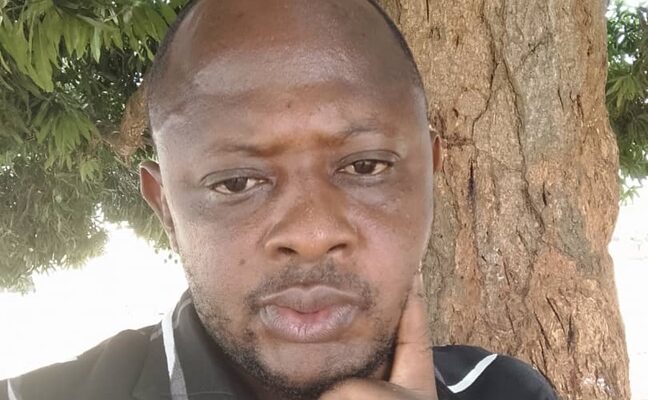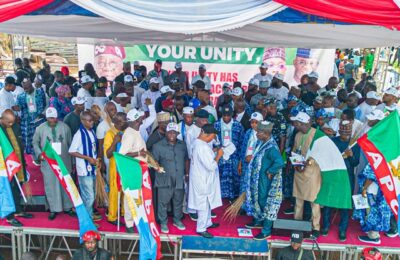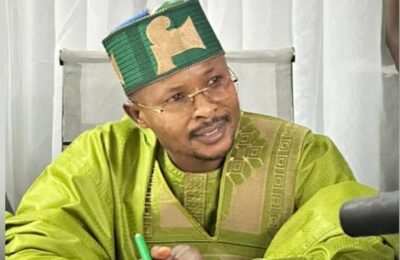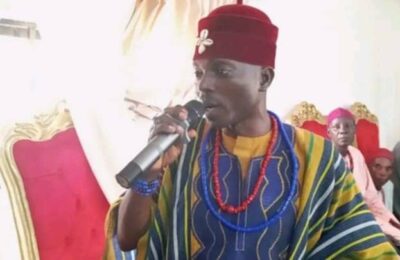In a country teetering between aspiration and anarchy, the gravest threats often do not emerge from the brazen villains who loot treasuries or incite violence. Rather, Nigeria’s political catastrophe is quietly engineered by those who possess both the authority to intervene and the discretion to remain silent. These are the silent architects of chaos — the witnesses of injustice who, cloaked in power, choose inertia over action, complicity over courage.
Throughout Nigeria’s turbulent history, one constant has prevailed: the abdication of moral responsibility by those best positioned to effect change. From military juntas to democratic governments, too many privileged insiders have preferred the safety of the sidelines, content to watch history unravel without raising a voice or lifting a finger. Their silence, like an invisible poison, corrodes the foundation of governance and erodes public trust, ushering in an era where wrongdoing is normalized, and accountability becomes a distant fantasy.
In the gilded corridors of Abuja and the smoke-choked halls of state assemblies, many politicians, judges, business magnates, and religious leaders have mastered the art of selective blindness. They are present when electoral fraud unfolds; they are witnesses when public funds are siphoned; they are aware when human rights are trampled. Yet, they summon no outrage, issue no rebuke, demand no reform. They mutter platitudes in private, and in public, they retreat behind a fortress of platonic smiles and diplomatic evasions.
Their silence is not benign; it is tactical. To speak is to risk political exile, economic disenfranchisement, or worse. Thus, cowardice is rebranded as prudence, and self-preservation masquerades as wisdom. But make no mistake: this cultivated inertia is an act of violence against the soul of the nation and God is not happy. When men and women entrusted with influence refuse to wield it for justice, they become the unseen saboteurs of democracy.
The tragedy is magnified when one considers the vast moral capital that Nigeria possesses. It is a nation of vibrant thinkers, fearless activists, and relentless dreamers. Yet, the influence of these virtuous few is dwarfed by the sheer weight of the complicit many. A society cannot thrive when its moral compass is outsourced to a handful of prophets crying in the wilderness while the mighty feign deafness.
Consider the recent electoral cycles, marred by allegations of rigging, voter intimidation, and judicial compromise. Many within the political establishment acknowledged the infractions in hushed conversations, in coded gestures, in knowing glances. But few dared to confront the machinery of corruption publicly. The result is an electoral system hollowed out from within, a democracy in name but not in substance.

Or examine the perennial crisis of insecurity — from insurgencies in the northeast to banditry in the northwest, and secessionist agitations in the southeast. Intelligence exists, resources abound, yet political will remains elusive. Governors and federal officials with real-time access to threats often opt for perfunctory condemnations instead of decisive interventions. The consequence is a bloodstained landscape where lives are treated as collateral damage in a cynical game of survival.
The silent architects of Nigeria’s chaos are not caricatures of evil. They are, in many cases, individuals with complex motivations: fear, ambition, disillusionment, greed. Some tell themselves they are “buying time,” “choosing battles,” or “working behind the scenes.” Yet history offers little sympathy for those who stand idle in the face of preventable ruin.
In the prophetic words of Dr. Martin Luther King Jr., “The greatest tragedy of this period of social transition was not the strident clamor of the bad people, but the appalling silence of the good people.” Nigeria today echoes this lament. For every tyrant who pillages, there are a dozen dignitaries who watch in silence, tethered by ambition or timidity.
God is warning you to change! It is time for Nigeria to reimagine leadership not merely as the possession of power, but as the exercise of moral courage. It is not enough to occupy offices, brandish titles, or command wealth. True leadership demands the audacity to disrupt injustice, even at personal cost.
The battle for Nigeria’s soul will not be won solely by voting, legislating, or litigating. It will be won when the silent witnesses awaken from their slumber of neutrality. It will be won when governors call out their colleagues, when judges resist pressure from the executive, when senators defy party dictates in defense of principle, and when business leaders leverage their influence to uphold, not undermine, the public good.
Silence, in the face of national decay, is not diplomacy. It is betrayal. Nigeria’s destiny hinges not merely on confronting the villains in plain sight but on awakening the passive titans who lurk in the shadows. Until the architects of chaos are unmasked — not only those who act wickedly but those who watch wickedness and whisper — the nation will remain trapped in an endless cycle of hope deferred and promise betrayed.
In the final analysis, the future of Nigeria rests not only on those who scream against injustice but on those who have power and choose to either speak… or stay silent. It is a choice between complicity and courage — and history, as always, will remember.
– Inah Boniface Ocholi writes from Ayah – Igalamela/Odolu LGA, Kogi state.
+2348152094428 (SMS Only)





